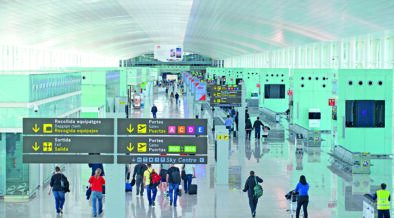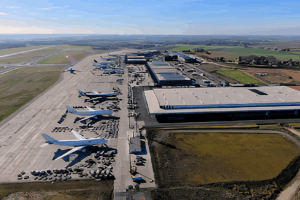
ACI World has expressed serious concerns regarding the decision by France, Kenya, Barbados, Spain, Somalia, Benin, Sierra Leone, and Antigua & Barbuda to launch a coalition ahead of COP30 focused on introducing a new tax on air transport.
The tax, it warns, places a special focus on premium flyers as a means to fund development, climate mitigation, and public health initiatives.
ACI World cautions that while well-intentioned, such a tax risks undermining the air transport sector’s critical role in driving economic development, global connectivity, and sustainability progress.

“We fully support the global pursuit of sustainable development and climate resilience. However, targeting aviation with additional taxes is likely to undermine the very connectivity and economic growth that support these goals,” says ACI World director general, Justin Erbacci.
“The aviation sector must be empowered – not penalised – if we want to achieve long-term global progress.”
Aviation Taxation Threatens Air Connectivity and Economic Growth
Taxation on aviation, states ACI World, has proven to hinder air connectivity and negatively impact regional economic growth.
It warns that the economic benefits lost due to these taxes can be twice as large as the revenue governments collect from them.
Indeed, ACI research on the Taxation of International Air Transport and Airports estimates that the removal of the $90 billion in taxes paid by aviation users would create 5.2 million jobs and $180 billion in global GDP.

New taxes, such as the one proposed, the association argues also risk impacting regions that are particularly dependent on air connectivity for trade, tourism, and broader development.
New Taxes Risk Undermining Aviation’s Net Zero Trajectory
ACI World fears that any new international taxes could divert critical funding away from the Carbon Offsetting and Reduction Scheme for International Aviation (CORSIA) initiative and other essential decarbonisation priorities – including sustainable aviation fuels (SAF), operational improvements, infrastructure upgrades, and low-emission technologies.
Aviation, it says, is already following an ambitious, co-ordinated plan to reach net zero carbon emissions by 2050 through the leadership of the International Civil Aviation Organization (ICAO).

Call for Smarter, Fairer Global Solutions
ACI World joins ICAO, the International Air Transport Association (IATA), the Air Transport Action Group (ATAG), and others in cautioning against measures that extract value from aviation without reinvestment in its sustainable future.
It believes that a globally fragmented approach – such as a tax imposed by a “coalition of the willing” – could distort competition, undermine environmental integrity, and disproportionately impact developing economies that rely on air transport for growth.






